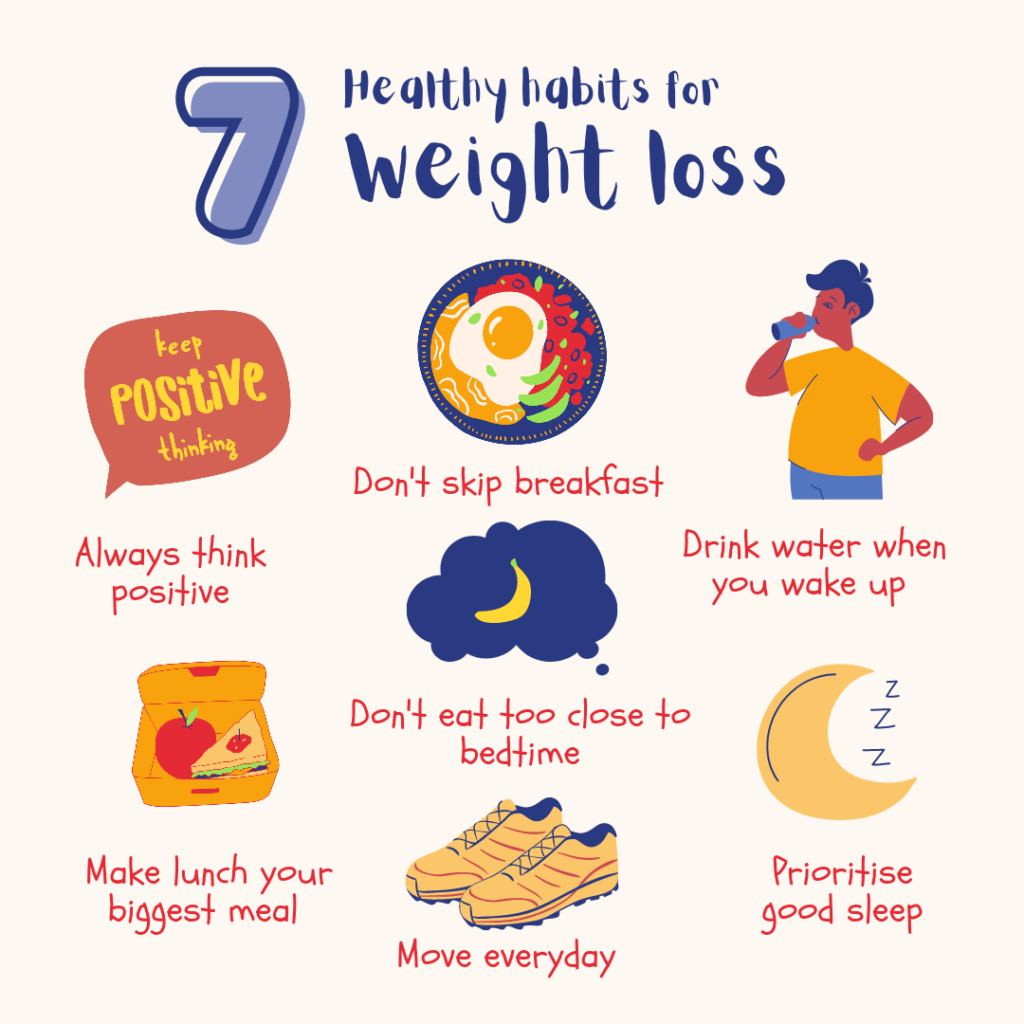Weight loss
Introduction:
Are you tired of trying different weight loss methods without any significant results? Don’t worry, because in this article, we will guide you through an effective weight loss management plan. By incorporating a healthy daily routine, balanced diet, and following the right do’s and don’ts, you can achieve your weight loss goals in a sustainable manner. Let’s dive in!

Designing Your Daily Routine for Weight Loss:
Establishing a consistent daily routine is crucial for successful weight loss management. Here are some essential elements to include:
a. Physical Activity: Incorporate regular exercise into your routine. Aim for at least 150 minutes of moderate-intensity aerobic activity or 75 minutes of vigorous-intensity activity per week. Activities like brisk walking, cycling, swimming, or dancing can help burn calories and improve overall fitness.
b. Adequate Sleep: Make sure to get 7-9 hours of quality sleep every night. Sufficient sleep promotes hormonal balance, reduces cravings, and supports overall well-being, which are essential for effective weight management.
c. Stress Management: Practise stress-reducing techniques such as meditation, yoga, or deep breathing exercises. Chronic stress can lead to weight gain due to increased cortisol levels, so managing stress is crucial for weight loss.
d. Meal Planning: Plan your meals in advance to avoid impulsive food choices. Include a variety of nutrient-dense foods, such as fruits, vegetables, lean proteins, whole grains, and healthy fats.
- Crafting a Balanced Diet for Weight Loss:
A healthy, balanced diet plays a significant role in weight loss management. Here are some key points to consider:
- a. Calorie Deficit: Create a calorie deficit by consuming fewer calories than you burn. However, it’s important to avoid excessively restrictive diets, as they can be unsustainable and lead to nutrient deficiencies.
- b. Portion Control: Be mindful of portion sizes to avoid overeating. Use smaller plates, measure your food, and listen to your body’s hunger and fullness cues.
- c. Hydration: Drink an adequate amount of water throughout the day. Water helps boost metabolism, suppresses appetite, and aids digestion. Replace sugary beverages with water or herbal teas.
- d. Nutrient-Dense Foods: Opt for whole, unprocessed foods that are rich in vitamins, minerals, and fibre. Include plenty of fruits, vegetables, lean proteins, whole grains, and healthy fats like avocados, nuts, and olive oil.
Weight Loss Do’s and Don’ts:
To maximise your weight loss efforts, it’s important to follow these do’s and avoid the don’ts:
https://sumhelath.com/wp-admin/post.php?post=849&action=edit
a. Do: Stay Consistent: Consistency is key when it comes to weight loss. Stick to your daily routine, diet plan, and exercise regimen for long-term success.
b. Do: Seek Professional Advice: Consult a healthcare professional or registered dietitian before starting any weight loss program. They can provide personalised guidance based on your specific needs.
c. Don’t: Rely on Fad Diets: Avoid crash diets or quick-fix solutions promising rapid weight loss. Instead, focus on sustainable lifestyle changes that promote gradual and healthy weight loss.
d. Don’t: Skip Meals: Skipping meals can lead to overeating later in the day. Aim for three balanced meals and include healthy snacks to keep your metabolism steady and prevent excessive hunger.
e. Do: Track Progress: Keep a record of your weight, measurements, and food intake. Tracking your progress can help you stay motivated and make necessary adjustments to your routine.
Conclusion:
Effective weight loss management requires a holistic approach that includes a well-designed daily routine, a balanced diet, and following the right things!..

